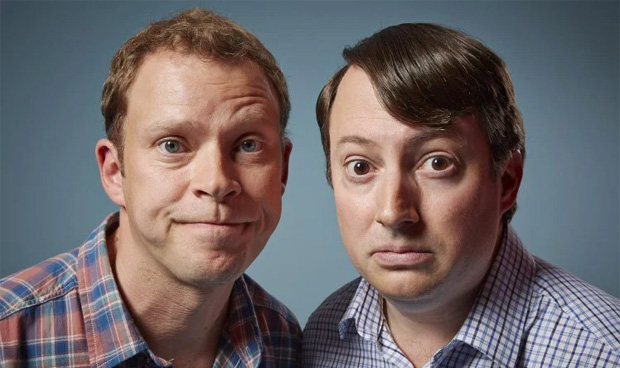Address
304 North Cardinal
St. Dorchester Center, MA 02124
Work Hours
Monday to Friday: 7AM - 7PM
Weekend: 10AM - 5PM
Address
304 North Cardinal
St. Dorchester Center, MA 02124
Work Hours
Monday to Friday: 7AM - 7PM
Weekend: 10AM - 5PM

There’s a speech in Peep Show’s series nine opener that sums up the show’s comedic focus: the gap between the face we present to the world and our inner feelings. Talking to Mark, Jeremy confronts his friend’s essential hypocrisy. “I know you, Mark,†he says, “I know you like to pretend that you’re this stuffed shirt who reads incredibly boring books about dead people killing each other with bayonets and typhoid, but I know the truth.â€
That truth, gleaned from years of friendship weaponised for this coup, is that Mark Corrigan isn’t, as he pretends to be, a rarefied type fascinated by nineteenth century arts movements, but instead “a pathetic human who likes Twirls and Downton and Bond and burgers.â€
Mark Corrigan isn’t kind; he revels in the schadenfreude of Grand Designs eco-builds going tits-up. He isn’t an academic or aesthete; he enjoys Storage Hunters, Candy Crush and Octopussy. We know it, Jeremy knows it, and Mark knows it.
Jez may as well have been talking directly to us. In fact, thanks to Peep Show’s point-of-view narration, he was. That’s what pin-sharp comedy Peep Show’s been doing for over a decade; making viewers laugh while confronting us with unflattering truths about ourselves.
Because really, we’re all Mark and Jez. Perhaps not in their more exaggerated moments—eating dogs on barges, getting university friends sectioned—but in their idle wonderings and ruinous paranoia. Peep Show’s inner monologues are an extreme, much funnier mirror of our unedited selves. ‘I know you,’ Peep Show tells its viewers. ‘I know about your self-absorption, your glee in banal victories and repeated failure to keep to pacts made only with yourself. I know the truth.’
It’s a nine-series confession of shared human weakness. With gags. As such, it’s comically uncomfortable yet comforting to watch. The former because Mark and Jez’s craven selfishness makes us cringe, and the latter because we see our worst traits magnified in them so can feel like better people by comparison.
Self-recognition (as a mark of respect for Corrigan, I can’t use the word ‘relatability’— it feels like the sort of modern invader he’d inveigh against, like ‘addicting’ or using ‘impact’ as a verb) is part of what makes Peep Show so cheering. ‘Don’t worry,’ the show reassures us, ‘we’re all petty, selfish and venal, but these two are much, much worse’.
Other sitcoms do similar of course: Seinfeld, Curb Your Enthusiasm, It’s Always Sunny In Philadelphia, Arrested Development… but the lives of US sitcom characters—with their Chinese takeaway in white cardboard boxes and groceries in brown paper bags—can’t help but feel exotic to UK viewers.
Peep Show, on the other hand, is unimprovably English. Mark and Jez live in a world of the Boots Meal Deal, the Kettering Conference Centre, Marmite and marmalade. And their lives, unlike those of Father Ted, Victor Meldrew, Reggie Perrin or Alan Partridge, aren’t so exaggerated that we can’t see ourselves in them.
They’re also a world away from the ‘aspirational’ sitcom, peopled by good-looking characters whose service-industry jobs somehow pay for vast city-centre apartments and new outfits each episode, and who speak entirely in quick comebacks and saucy come-ons.
That’s not Mark and Jez. Their ‘zingers’ aren’t greeted by studio applause, but by the withering scorn of self-critique (Mark) or the delusional sound of one hand high-fiving (Jez).
Those inner monologues are among sitcom’s highest achievements. It’s not the quality of David Mitchell and Robert Webb’s performances, and technical coup of the first-person perspective that makes them so—though both certainly help—but the precision of the writing.
Creators Sam Bain and Jesse Armstrong must whittle down Mark and Jez’s inner voices like modern poetry. Even now, nine series in, they still coin repeatable comic phrases every other line. (I’ve seen the first episode of series nine once and “toilet toastâ€, “do you want to play Capitalism?†and “Gonna relax this shit out with a lean†are already mine for good.)
Also like the rest of us, Mark and Jez are at their most articulate inside their heads. Confronted with life’s big moments – love, death, the birth of a child, they’re both bathetically inept (the phrase “minimal water damage†not likely to appear on any New Baby Congratulations cards anytime soon).
Their most affecting inner thoughts though, are the lies they tell themselves. Jeremy trying to convince himself that owning both a sleeping bag and a duvet proves that his bath-dwelling life isn’t a failure is endearingly pathetic, as is Mark’s continuing search for “the oneâ€. These two continually let themselves down, breaking resolutions the second they make them, and spinning elaborate, entertaining justifications for their disappointing actions. Yet we can’t help but love them.
A glass raised then, to Mark and Jez. They’re weak-willed, they’re cowardly, they’re selfish, and they’re us. What on Earth are we going to do without them?